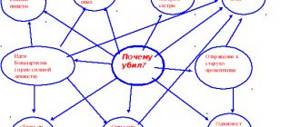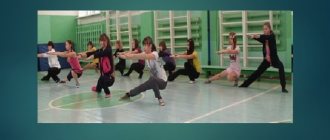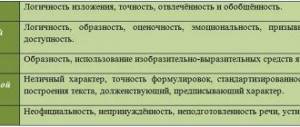so UNT / Lesson developments / Lessons on Russian literature
Synopsis for the Russian literature lesson “The Poetic World of F.I. Tyutchev and A.A. Feta" 10th grade
05.15.2015 8854 0 Getmanskaya Natalya Valerievna Objectives: - to acquaint students with the main stages of the life and work of poets, the originality of their work; - reveal the main themes and motives of the poets’ work; - develop expressive reading skills.
During the classes. 1. Introductory conversation. - The teacher's word. The poetry of F.I. Tyutchev and A.A. Fet is one of the most precious assets of classical literature. Interest in the work of great lyricist thinkers, soulful exponents of human feelings, and inspired singers of nature is growing. One is attracted not only by the tragic intensity of the lyrics of Tyutchev and Fet, but also by the life of the poets, extraordinary, bright, filled with dramatic turns. — Portraits and statements about poets (on the board). 2. Teacher’s message on the biography of poets.
Stages of the biography and creativity of F.I. Tyutchev.
Born November 23 (December 5), 1803 in the village. Ovstug of the Bryansk district of the Oryol province in a noble noble family. 1819 – first publication – a free adaptation of the “Epistle of Horace to Maecenas”. 1819-1821 – study and early graduation from the verbal department of Moscow University. 1821 – joining the College of Foreign Affairs. 1822-1839 – diplomatic service in Munich and Turin. 1826 - marriage to the widow of a Russian diplomat, Eleanor Peterson. 1836 – publication in the magazine “Contemporary” of “Poems sent from Germany.” 1838 - death of his wife and marriage to Ernestine Dernberg (nee Baroness Pfeffel). 1844 - return to Russia, service in the Department of Foreign Affairs. 1850 – publication of 92 poems by Tyutchev as an appendix to the Sovremennik magazine. Rapprochement in Elena Alexandrovna Deniseva. 1854 – Tyutchev’s first collection of poetry. 1858 – Chairman of the Foreign Censorship Committee. 1864 – death of E.A. Deniseva. 1868 – Tyutchev’s second collection of poetry. Died June 15 (27), 1873 in Tsarskoe Selo. Buried in St. Petersburg.
Stages of the biography and creativity of A.A. Fet.
Born in 1820 on the Novoselki estate in Mtsensk district. The exact date is unknown (October 29, November 23, November 29). 1834 - the spiritual consistory learns about the illegality of the metrical record of the poet’s birth. Shock caused by the deprivation of all rights and privileges. Change of surname from Shenshin to Fet. Moving to the Livonian city of Verro, studying in a private boarding school. 1834-1844 – study at Moscow University. Friendship with Apollon Grigoriev. Passion for poetry. 1840 - the first collection of poems “Lyrical Pantheon”. 1843 - publication in the journal Otechestvennye zapiski of a poem that was Fet’s poetic declaration, “I came to you with greetings...” 1845 – entering military service in order to obtain hereditary nobility. 1850 (changes in 1856) – poem “Whisper, timid breathing...”. Publication of the second collection of poetry. Meet Maria Lazic. 1853 – the beginning of cooperation with the Sovremennik magazine. 1856 publication of a collection of poems prepared by I.S. Turgenev. 1857 - marriage to M.P. Botkina. 1858 - resigns without having achieved the title of nobility. 1859 – a break with the Sovremennik magazine. Complications in relations with the editors of other magazines. 1860 – acquisition of the Stepanovka farm. Agriculture activities. 1863 – a two-volume collection of poems – the result of 25 years of creative activity. 1873 – the noble surname Shenshin was returned to the poet. Fet remains as a pseudonym. 1877 – acquisition of the ancient Vorobyovka estate. 80s – four collections of “Evening Lights” (1883, 1885, 1888, 1891). 1886 – Member of the St. Petersburg Academy of Sciences. 1889 - the title of court chamberlain. 1892 - died.
2. A statement of the main themes and motives of the works of Tyutchev and Fet (students write briefly in their notebooks).
The main themes and motives of F.I. Tyutchev’s lyrics. The fragment is the leading genre of Tyutchev’s lyrics. There are no poems or large works. 1. Poet and poetry. The poet must help others find answers to questions about freedom, love, the place of man in nature, about their unity; show all the wonderful sides of unity with nature. 2. The spiritual crisis of the modern generation. Man ceases to be aware of his unity with nature, ceases to understand nature, seeing in it only objective reality, insensitive and indifferent. In the modern, too materialistic age, people began to doubt the laws of divine secrets, and the soul of nature closed before them. 3. Russia. Tyutchev's poems are filled with reverent and tender love for the Motherland and hidden pain for it. The poet does not describe either the Russian village or the hard labor of the Russian peasant, but behind the pictures of nature a poor, suffering, beautiful and beloved Russia is revealed. Tyutchev pins his hopes on the unity of all Slavic peoples with Russia, emphasizing the uniqueness and inexplicability in many respects of his native country. He assigned the leading role to Russia on the basis of following Christian commandments, humility, and continuing the role of virtue. The theme of the Motherland is closely connected with Christian themes in Tyutchev’s works. 4. Nature. The essence of nature is what is inaccessible, what lies behind the surface of the phenomenon, in the reserved darkness, on which bright colors are thrown by a bright day. Nature is not a landscape inhabited by plants, animals and people, it is a space in which the elements live and operate. Tyutchev is not interested in pictures of nature, but in observations of the elements. With the help of these observations, the poet seeks to understand the essence of existence, the universal laws of the universe. 5. Love. This is one of the central themes in Tyutchev’s mature lyrics. This reflected his personal life, full of passions, tragedies, and disappointments. For the poet, love is both “bliss” and “hopelessness”, and an intense feeling that brings suffering and happiness to a person, a “fatal duel” of two hearts. The theme of love is revealed with particular drama in poems dedicated to E.A. Deniseva. Tyutchev saw and highly appreciated the power of feeling in a woman. His beloved appeared in poetry as a true heroine of love, accomplishing a feat. The poet asserts a woman’s right to personal feelings, to love, to fight for her. In love, the heroine revealed herself, the best qualities of her personality, her capabilities. 6. Christian motives. Intensified individualism means that a person loses his support and loses his faith. This exaggeration of the personal principle, subject to destructive egoistic passions, is the spiritual disease of the age. It must be humbled for the sake of the highest meaning of human existence and in the name of the highest, super-personal laws established by God. The suffering Russian people are an example of Christian humility and obedience to the covenants of Christ.
The main themes and motives of A.A. Fet's lyrics. The main thing in Fet’s poetry is the depiction of a moment, beautiful and irrevocable. 1. Poet and poetry. Poetry is alien to any benefit and any meaning: “A work of art that has meaning does not exist for me.” In poetry, sensation, feeling, influx, revelation are placed in the first place, but does not reject reason. “An artist values only one aspect of objects: their beauty.” Beauty, symbolizing life, lifts the soul and carries it into the region of “highest bliss.” In the lyrics, Fet addresses the original harmony and beauty, unity with the whole world. The artist's duty is to see all this in the simplest, most ordinary phenomena of nature and reproduce it. The poet’s primary task is to capture and convey dreams and dreams, elusive, born of the half-mad consciousness of the poet. 2. Nature. The secret of nature lies in the visible surface, which is always charming at any time. There is no mystery beyond day or night. They are the essence of nature. It is the appearance that directly appears to our eyes, our hearing, our sense of smell, our senses that is the secret of nature, its essence, its depth. His landscape sketches reveal much in common with the paintings of the Impressionists: the same desire to show the ordinary in the extraordinary, the same subjectivity of worldview and forms of expression. 3. Love. Lack of an individualized image of the beloved girl. The joyful state of falling in love is conveyed, when an inspired person feels unity with the entire universe, and the elements of nature are, as always, fused with spiritual experiences.
Tyutchev and Fet go away from the outside world and social problems into the deepest experiences of the soul, appealing to sublime feelings and beauty. For poets, beauty is diffused in everything - in the surrounding reality, in nature, in a woman as the highest embodiment of beauty. The ability to notice beauty among the random and superficial characterizes the aesthetic principle, the impeccable poetic instinct of the “singers of life.” Fet and Tyutchev, according to researchers, at the moment of creativity give the poem the best that is in the world, they dissolve in their creativity.
4. Table (projected, printed tables are distributed to students).
Features of the poetic world
TYUTCHEV FETA - Perceived existence as a catastrophe. — Poet-philosopher, poet-psychologist. — The last Russian romantic.
— Nature is a living, spiritual, multifaceted world.
— Man is often alone and powerless in comparison with the power of nature.
— Poems are characterized by a rich metaphorical quality.
— In terms of genre, there is a tendency towards a philosophical miniature, towards a poetic fragment. — The greatest poet of “pure art.” — He entered the history of poetry as a landscape painter.
— Nature is a beautiful living being. — He loved to depict “transitional states” of nature.
— Man is a particle of nature, a being equal to it.
— The artistic world is created by a variety of rhythms, sounds, and special syntax. — Fet is a master of composition; uses all types of compositional repetitions (ring, anaphora, refrain).
— In terms of genre, it gravitates towards a fragment, a lyrical miniature.
5. Working with the class. Students read poems by Tyutchev and Fet by heart, while reading a projection of a selection of paintings, the teacher gives comments. Each poem relates to a theme or motif.
(theme of the poet and poetry) SILENTIUM! Be silent, hide and conceal And your feelings and dreams - Let them be in the depths of your soul
They get up and go in. Silently, like stars in the night, - Admire them - and be silent.
How can the heart express itself? How can someone else understand you? Will he understand what you live for? A spoken thought is a lie. By calling, you will disturb the springs, - Feed on them - and be silent.
Just know how to live within yourself - There is a whole world in your soul of Mysteriously magical thoughts; They will be deafened by the external noise, the rays of the day will disperse, - listen to their singing - and be silent!..
The theme of creativity, the highest purpose of the poet-thinker, acquires particular significance - the Muse, speaking among the “worldwide silence,” is equal in its greatness to the Olympian gods. Silence becomes the only means to save the inner world from the vain and mocking crowd, “murderous worries.” Also developing is the favorite idea of the romantics about the inexpressibility of the soul, about the impossibility of conveying the inner one in external speech, which, with its linguistic expression, loses the depth and richness of feelings. Thus, the contradiction between the soul and the word expressing it becomes universal. It concerns both a person and his relationships with other people.
(love and nature) *** Whisper, timid breathing, Trill of a nightingale, Silver and swaying of the Sleepy stream,
Night light, night shadows, Endless shadows A series of magical changes of a sweet face,
In the smoky clouds there is a purple rose, a reflection of amber, and kisses and tears, and dawn, dawn!..
Fet's poem is imbued with one mood. This mood is the result of a strict selection of impressions that are beautiful and lasting in their meaning. There are no hints of reality: the feeling expressed in it is outside of specific categories. Two motives can be distinguished - love and nature; they are not simply interdependent here and form one sensory-natural series of images, in which the main thing is the contiguity of feeling with the elusive natural whole. The most important structural element here is melody.
(nature) *** In the original autumn there is a short but wonderful time - The whole day is as if crystal, And the evenings are radiant...
Where the cheerful sickle walked and the ear fell, Now everything is empty - space is everywhere, - Only a thin hair of cobwebs
Glistens on the idle furrow. The air is empty, the birds are no longer heard, But the first winter storms are still far away - And the clear and quiet azure is pouring onto the resting field...
This is one of the very few purely landscape poems by Tyutchev. The poet is truly keen on the landscape. He feels the charm of early autumn, when an immense expanse opens up, and the field worker, having completed his “work,” rests. The poet finds an expressive image - “Only a thin hair of a cobweb Shines on an idle furrow.” The “resting field,” before being covered with snow, is deservedly “rewarded” from above: “clean and warm azure pours onto it.”
(nature) *** She came, and everything around her melts, Everything longs to surrender to life, And the heart, a prisoner of winter blizzards, Suddenly forgot how to shrink.
Everything that was silently tormented yesterday began to speak and bloom, And the sighs of the sky were brought from the dissolved gates of Eden.
How cheerful the small clouds are! And in the inexplicable triumph Through the trees, the round dance bursts with greenish smoke.
The sparkling stream sings, And from the sky a song, as it used to be; It seems to say in it: Everything that forged has passed.
You can't care about petty things, although you won't be ashamed for a moment, You can't, in front of eternal beauty, not sing, not praise, not pray.
The spontaneous life of nature inspires delight in the soul. A person’s spiritual powers blossom, inspiration flows to him. Vienna is a state of air and a state of soul. A person’s feelings and thoughts capture the state of the air through smells, sounds, colors. The life of nature is transmitted to man, and his heart responds to subtle changes in it with trepidation, joy and delight. Thus, man and nature form a single whole.
(love) *** I knew the eyes - oh, those eyes! He breathed sadly, deeply. How I loved them, God knows! In the shadow of her thick eyelashes, From their magical, passionate night Like pleasure, tired I could not tear my soul away. And, like suffering, fatal.
In this incomprehensible gaze, And in these wonderful moments, Life is revealed to the bottom, I have never had the opportunity to hear such grief, To meet him without excitement, Such depth of passion! And admire it without tears!
In this poem, the beloved appears not as an “unearthly creature,” but as a person who has everything human: not only sublime and noble feelings, but also weaknesses, mistakes, contradictions, passion, and anger. The poem is permeated with torment and pain, melancholy and despair, memories of past happiness, fragile, like everything on earth.
(love) *** I won’t tell you anything, And I won’t alarm you in the least, And I won’t dare to hint at anything about what I silently repeat.
Night flowers sleep all day long, But as soon as the sun sets behind the grove, the leaves quietly open, And I hear my heart bloom.
And the moisture of the night blows into my sore, tired chest... I’m trembling, I won’t alarm you at all, I won’t tell you anything.
Fet's poems about love are sublime and wise in Pushkin's way. It is no coincidence that many of them became romances, the performance of which gives rise to a whole range of feelings in a person’s soul. And this poem, like many others, is written in the first person, in the form of a monologue, as a memory of love.
(philosophical understanding of nature and human life) ***
Not what you imagine, nature: The rays did not descend into their souls, Not a cast, not a soulless face - Spring did not bloom in their chests, It has a soul, it has freedom, In their presence the forests did not speak There is love in it , there is a language in it... And the night in the stars was silent!
………………………………. And with unearthly tongues, You see the leaf and color on the tree: Wavering rivers and forests, Or did the gardener glue them? I didn’t consult with them in the night, Or the fruit is ripening in my birth womb, In a friendly conversation there’s a thunderstorm! The play of external, alien forces?.. It’s not their fault: understand, if possible, ……………………………….. Organa’s life is deaf and dumb! Alas, the souls in him will not be disturbed. They do not see or hear, And the voice of the mother herself! They live in this world as if in darkness, For them the suns, you know, do not breathe, And there is no life in the waves of the sea.
Here one of the features of Tyutchev’s work is manifested - the consonance of his inspiration with the life of nature. Nature is depicted in motion, as a participant in the events of human life, as a manifestation of Divine wisdom, it is alive and spiritual, there is nothing motionless or dead in it. This feeling saves the poet from the dichotomy between thought and feeling: his poetry is full of conscious thought, and his thoughts found only poetic expression. The world, as such, and all its manifestations represent an integral, unified organism. This integrity and unity are created through contradictions, through the struggle of elemental forces. Tyutchev sought to understand the world as a whole, but not in the form of a mechanical combination or a set of various features, but as a living, mobile and internally contradictory organism. According to Tyutchev, there is no impenetrable wall between man and nature. On the contrary, man and nature are spiritual. They are originally endowed with a soul, feelings and languages. These feelings and languages are related. They are inherent in nature and man from above. Failure to understand this by a person leads to tragedy and is fraught with the disunity of a person with the world as a whole, with nature.
In the poem, accusatory, didactic intonations increase, directed towards those who are cut off from universal life, from existence. This is how the present century has made people, and therefore the guilt is removed from them, but the bitterness does not disappear: just as the voice of a mother cannot alarm a deaf-mute, so the soul of Mother Nature does not excite fearless and soulless hearts.
(Love)
***
At dawn, don’t wake her up, And the brighter the moon shines, At dawn she sleeps soundly; And the louder the nightingale whistled, Morning breathes on her chest, She became paler, Brightly glowing on her cheeks. My heart beat more and more painfully.
And her pillow is hot, That’s why it’s on her young chest, And her tiring sleep is hot, That’s why the morning burns on her cheeks. And, turning black, they run onto her shoulders. Don’t wake her, don’t wake her... Braids with ribbon on both sides. At dawn she sleeps so sweetly!
And yesterday in the evening she sat at the window for a long, long time and watched the game in the clouds that the moon, gliding, was playing
In this poem, the poet accurately captured and conveyed the state of youth with its secret desires, impatient expectations, and vague anxieties. And, as always, the elements of nature are fused with emotional experiences. “Morning breathes on her chest” - “the figurative meaning of morning-youth disappears, as it is organically included in the picture of the very morning of nature, the all-encompassing morning of life,” noted N.N. Skatov.
Day and night. On the world of mysterious spirits, Above this nameless abyss, A gold-woven cover is thrown by the High will of the gods. Day is this brilliant cover... But the day fades - night has come; She has come - and from the world of fate, the cloth of grace has been torn off and thrown away... And the abyss is exposed to us With its fears and darkness, And there are no barriers between it and us - That’s why the night is scary for us!
The night is no less good than the day: the stars shine brightly in the night and there are often revelations. Day throws a golden cloak over the abyss, which night throws away. However, daylight always conquers the night: it drives away its darkness, and is a symbol of life and heavenly power, defeating death and evil. Tyutchev’s poetry, which proclaimed a high moral ideal, was associated with daylight.
(philosophical reasoning)
Fountain.
See how the shining fountain swirls like a living cloud; How it burns, how its moist smoke breaks up in the sun.
Rising to the sky with a ray, he touched the cherished heights - And again, with fire-colored dust, he was condemned to fall to the ground.
About mortal thought, a water cannon, O inexhaustible water cannon! What incomprehensible law strives for you, troubles you?
How greedily you rush to the sky! But the invisibly fatal hand, refracting your persistent ray, overthrows in the spray from the heights.
The fountain is likened to a ray. This comparison gives the whole poem a special tension: after all, according to tradition, the ray is associated with heavenly light, and its natural direction is from top to bottom, from heaven to earth. The fountain is a ray in reverse, it is directed from the earth to the sky, as if challenging the law of gravity. This is a kind of challenge to the sky. And it is precisely for this challenge, for this stubbornness, that he is condemned to fall to earth again.
(nature and man; theme of the Motherland) *** Human tears, oh, human tears, You flow early and late... You flow unknown, you flow invisible, Inexhaustible, innumerable, - You flow like streams of rain Into the dull autumn, sometimes at night.
Here we can almost see that truly poetic process by which the external sensation of drops of frequent autumn rain pouring on the poet, passing through his soul, is transformed into a sensation of tears and clothed in sounds, which, just as much with words, as much with their very musicality, produce in us and the impression of rainy autumn, and the image of crying human grief... I.S. Aksakov
(poet and poetry) F.I. Tyutchev. My beloved poet I come to you with a request and a bow; Send me your portrait in a letter, which was drawn by Apollo.
Your flight has long dreamed of me. I was carried away by magical power, Your forehead, your sweet appearance has long lived in my chest.
Your stone - repeat, Asking for poetry - I bother you, But I don’t let go of the treasured notebook From greedy hands.
Admirer of eternal beauty, Long humbled before fate, I ask one thing - that you be before me in all forms.
That’s why I’m in a hurry, poet, I come to you with a request and a bow: Send me your portrait in a letter, Which was drawn by Apollo.
In the ongoing debate between “pure” and democratic art, the poetry of Tyutchev and Fet was subjected to particularly careful analysis. Fet, who took part in this, attracted the best examples of Tyutchev’s poetry as an example of the superiority of “pure poetry”. And supporters of the democratic camp treated Tyutchev’s poetry as a serious phenomenon. The image of Tyutchev in this poem is both an example, an ideal, and a teacher for Fet.
(Love)
AVE MARIA
Ave Maria - the lamp is quiet, Four verses are ready in the heart:
Pure maiden, grieving mother, Your grace has penetrated my soul. Queen of the sky, not in the brilliance of rays, In a quiet dream, appear to her!
Ave Maria - the lamp is quiet, I whispered all four verses.
*** Lady of Zion, before you in the darkness my lamp is lit. Everything around me is sleeping - my soul is full of Prayer and sweet silence.
You are close to me... With a humble soul I pray for the one with whom my life is clear. Let her bloom, whether she is happy With another chosen one, alone - or with me.
Oh no! Forgive the influence of illness! You know us: we are destined to save each other through mutual prayers.
So give me strength, stretch out your holy hands, So that in the midnight hour of separation I can light a lamp before you brighter!
6. Final word from the teacher. “The combination of these two names - Tyutchev and Fet has become common: some bring them together, others contrast them. Blok has the words: “The entire triumph of genius, not contained by Tyutchev, was contained by Fet.” This is a statement of the highest kinship of our two lyrical poets... Following Tyutchev, together with him, Fet improved and endlessly diversified the subtle art of lyrical composition and construction of miniatures. Behind their apparent repetition lies an infinite variety and variety, an incessant lyrical counterpoint that captures the complexity of human spiritual life.” L.A. Ozerov Most of the love lyrics of Tyutchev and Fet are of a pronounced musical nature (“I met you...”, “I won’t tell you anything...”, “Don’t wake her up at dawn...”), determined following Apollo Grigoriev. as “musically elusive.” Fet often emphasized the need for musical sound in lyrics. It is oriented towards romance, created in the tradition of romance and is perceived in line with this tradition (musical-ecstatic, as it is called). The musicality, symbolism and allegory of the lyrics allow us to consider the poetry of Tyutchev and Fet as the source of the symbolic direction of the 20th century. Fet and Tyutchev were perceived by symbolists as great sages and humanists who transform tragedy, suffering, pain into beauty and joy: You can instantly feel someone else’s as your own. Whisper about something that makes your tongue go numb. Strengthen the battle of fearless hearts... - this is exactly how the work of Fet and Tyutchev is perceived today, in the ineradicable ability to “pass everything through the heart.”
Homework. Biography of Tyutchev; a poem by heart of your choice; repeat the elements of analysis of a lyrical work.
Tyutchev... created speeches that are not destined to die. I.S. Turgenev
...for Tyutchev, living means thinking. I.S. Aksakov
And in the full splendor of manifestations, the daytime world will suddenly engulf us. F.I.Tyutchev
He is a high, highest authority in poetry, in art, in thought. V. Bryusov And while the light rejoices in holy art, Inspired Fet will be dear with tender feelings. K. Fofanov
But in a touching verse you will find this eternally fragrant rose... A.A. Fet




